Introduction
“Diplomacy and defense are not substitutes for one another. Either alone would fail.” -John F. Kennedy, Address at the University of Washington’s 100th Anniversary Program
In simpler terms, national security refers to ‘physical security’, understood as the protection against attack on the territory and the people of a country in order to ensure survival with fundamental values and institutions intact. In broader terms, it refers to the promotion of political values and socio-economic prosperity. National Security encompasses three core national interests; national independence, sovereignty and territorial integrity. There are different approaches of preventing war such as diplomacy, balance of power, deterrence, collective security, and arms control. The diplomacy is and should be the top priority of each state as the world is growing much interdependent and the dizzying pace of globalization is bringing states together in solving social, environmental, economic and even political issues. National security comprises variousaspects of securities such as physical security, political security, economic security, ecological security, security of energy and natural resources, cyber security and infrastructure security.
While presenting diplomacy as an instrument of national power, Reed J. Fendrick writes, “Diplomacy is one instrument among many that a government utilizes in its pursuit of the national interest. Among others are: military power, actual or potential; economic power, intelligence gathering and operations; cultural and information or “soft power”; relative degrees of national unity; and probably others” (Fendrick, 2014). He further writes that diplomacy fundamentally consists of a constant assessment of other countries’ power potential, perceived vital interests, relationship with other interests, in an attempt to maximize the country’s freedom of action with the purpose assuring the achievement of the nation’s vital interests, the core of which is survival.
Diplomacy plays key roles in mitigating wars. For example, in history, Yalta Conference of 1945 had avoided the possible hardline wars with Germany in post WWII period. This conference shifted hardline war to non-military conflict. In traditional sense, National Security aims at preserving the state from threats. However, there are myriads of challenges upon national security from several directions. The world today is facing the problems of migration, narcotics, transnational crime, terrorism, pandemic, environmental degradation, critical resource shortages, and others. Considering the presence of such threats in a state, the government has to shield itself with some possible measures to enhance the economy, maintain the peace and order, and garner the international support side by side. At this juncture, national security seems to be at vulnerable situation if not backed up with strong diplomacy to preserve human security, economic development, and to prevent conflict within and among states. To resolve the threats upon national security, unlike conventional mechanism of warfare and discordant rhetoric, diplomacy can play an important role as a guarantor of peace, prosperity and minimal consensus among the states.
The Evolving Concept
The concept of national security has changed a lot over the time. Scholars perceive national security differently. The shifts that have taken place in the domain of international system are the guiding principles of national security. Amidst the growing complexity of the world today, the concept has turned to be a prime subject of discussion, analysis and dialogue not only among the scholars but also among the strategists, policy-makers and economists. For example, BaryBuzan and his companies argue for expanding the scope of security by including the range of issues such as politics, economy, society and ecology within the scope of security studies. Furthermore, Buzan argues that the issue of security is better appreciated if a holistic approach is adopted reintegrating the three levels i.e., international system, the nation-state and individual. He has invented the term ‘systematic security’ to incorporate all security concerns at all levels (Buzan, 1983).
In the similar vein, Emma Rothschild talks about the idea of ‘extended security’, where she underscores the conceptual shifts taken by the idea of security itself. The course of national security is not so different (Rothschild, 1995). The international commission on Global Governance was the exponent, in 1995, of vertically extended security, “Global security must be broadened from the traditional focus on the security of states to the security of the people and planet.” The United Nations Development Program (UNDP) took as the principal theme of its 1994 Human Development Report the transition “from nuclear security to human security”, defined as safety from “such chronic threats as hunger, disease, and repression”, and “protection from sudden and hurtful disruptions”. Moreover, the United Nations Secretary-General called in 1995 for a “conceptual breakthrough,” going “beyond armed territorial security” (as in the institutions of 1945) towards enhancing or protecting “the security of people in their homes, jobs and communities.” This way, the conventional notion of security has changed and new dynamics are emerging in international system. Thus, the concept of national security is taking a different shape. The priorities, dimensions and actors of national security are changing with the time. The road national security takes, will always be in progress because of the changing nature of the human society itself. Needless to say, the security dimensions are changing due to the rapid development of science and technology.
Threats to National Security
The modern world has changed a lot due to globalization, modernization and inventions of science and technology on the one hand. On the other hand, the threats to national security have been emerging. The security threats involve not only conventional foes such as other nation-states but also unconventional issuessuch as terrorism, transnational security challenges, border crimes, piracy, organized crimes, great powers’ geo-politics and power-play,pandemics, narcotic cartels, hegemony of multinational corporations and non-governmental organizations; some authorities include natural disasters and events causing severe environmental damage in this category. As the world is growing more advanced, thee threats and insecurities are also emerging side by side. The countries have become more competitive today than ever in the past. The nuclear powers are growing in quality and quantity. The rapid development of science and technology has not only developed the world, but also invited threats to security dimensions. The war is more prone today as most of the countries are prepared with nuclear weapons and armed forces.
Coping with Threats
State needs certain strategies to cope with the threats to national security. National security guarantees the survival of the state with economic power, diplomacy, power projection, international coordination and legitimate use of political power. The concept was developed mostly in the United States after World War II. Initially,it focused on military might. The shift took place from “might makes right” to “right makes right.” Now, it encompasses a broad range of facets, all of which impinge on the non-military or economic security of the nation and the values espoused by the national society. Accordingly, in order to possess national security, a state needs to possess economic security, energy security, environmental security and many others. The measures taken to ensure national security include the use of diplomacy to rally allies and isolate threats.Marshaling economic power to facilitate or compel cooperation in maintaining effective armed forces for implementing civil defense and emergency preparedness measures (including anti-terrorism legislation) is a necessity.State machineries should ensure the resilience and redundancy of critical infrastructure by using intelligence services to detect and defeat or avoid threats and espionage, and to protect classified information. In this regard, they can use counterintelligence services or secret police to protect the nation from internal threats.
Undoubtedly, diplomacy is one of the crucial components of national security. Various diplomatic engagements such as policy coordination, dealings with foreign diplomats, public diplomacy, building support at home, pre-negotiations, negotiations, diplomatic momentum, packaging arrangements, routine and crisis diplomacy (vaccine diplomacy in the context of current pandemic can be an example), summitry and mediations are important for fulfilling the national interest. Above all, garnering national security through achievements of national interests is the major agenda of any state. For this, diplomacy is proven to be a boon. Therefore, it is evident that sound diplomacy of a nation can contribute a lot in building sound socio-economic and political status of the country. Diplomacy, at times, functions as one of the best means for achieving the expected result in international game of power. Without diplomacy, security, or say national security would dysfunctional.
Can Diplomacy Be Instrumentalin Preventing Warand Crisis?
Diplomacy runs peacefully, though some coercive power is also used. A famous maxim goes like “War begins when diplomacy fails” and “every war ends with diplomacy”. This implies the use of peaceful instruments to pursue one’s interests (Acharya, 2019).
Diplomacy is one of the key national security tools to regulate the international relations by controlling the perception. It is the protracted game where art and craft substitute the constitutive arrangement of the law. As the political leadership represents the voice of the citizen, the diplomacy carries the foreign policy and national interest to the international arena. Overall, working for national security is the prime responsibility of diplomacy. The term national security refers to the safeguarding of people, includes protection from physical assault and in that sense, national security is similar to the term defense. After internalizing the meaning of these two terms diplomacy and national security, we can sense an integral relationship between two.
InSatow’s Diplomatic Practices (2012), Sir Ivor Roberts mentions that “Nevertheless, in normal circumstances it will conduct its international intercourse by negotiation, a form of soft power. This is the diplomacy. Persuasive argument, if applied skillfully and sensitively at the right time, may achieve a better result than persuasion too obviously backed by the threat of force. The latter may provoke resistance and ultimately lead to war.” In similar vein, Sir Harold Nicolson (1977), an English Diplomat born in Tehran, Persia, states that, “diplomacy is neither the invention nor the pastime of some particular political system, but is an essential element in any reasonable relation between man and man and between nation and nation” (Nicolson, 1977).Needless to say, diplomacy is the requirement of any harmonious socio-economic and political bond.
Since the dawn of the human race, diplomacy is in practice in difference forms. This is an act of conducting negotiations between two persons, or two nations at a large scope, which is essential to the upkeep of international affairs. Among the many functions of diplomacy, some include preventing war and violence, and fortifying relations between two nations. Diplomacy functions to complete a specific agenda. Therefore, without diplomacy, much of the world’s affairs would not exist, international organizations would not exist, and above all the world would be at a constant state of war. It is for diplomacy that certain countries can exist in harmony (Anon, 2011).
Annihilating the existing gap between the state, diplomatic venture attempts to preserve and strengthen the national sovereignty, integrity and security amongst the states. Sinking diplomatic reciprocity between the states reflects, and helps to make fertile space for conflict and ultimately the state of war.After the fall of Greater Roman Republic in Europe, Italian city-states and big castles began to practice the modern form of diplomacy. To prevent war and to establish firm rapport between the states, the then Italian sovereign city-states devolveda refined diplomatic discourse. By and large, they set a peaceful and firm understanding amongst states so that they could live without fearing the haunting experience of warring atmosphere.
Even in Indian literature, cannot we perceive the vital importance given to the ambassador’s role in managing the conflict between clans and countries? For instance, Krishna’s venture to prevent the bloodbath of Mahabharata by clothing himself as an ambassador of Pandavacan be interpreted as an undeniable force of diplomacy and its praxis.
The inviolability of territory, national heritage, national image and national interest are the top priorities of national security. The possible threats to national security are more likely to emerge from external environment. Therefore, proper handling of external relations of a country is necessary for sound national security. At this point of time, the role diplomacy becomes quite understandable. Diplomacy as a national security tool strives to guarantee the objectives of sovereignty and independent existence, democratic identity, social integrity, peace, progress and human security as a whole. Diplomacy is one of the tools of external defense in the arena of international relations. It exists to establish specific policies and strategic actions concerning the strengthening of power, since the increase of power refers to the increase of possibilities regarding negotiation and deterrence.
Diplomacy: An Instrument of National Power
Diplomacy is one of the most handy-instruments of national power. Diplomacy functions as a tool of national power in five different ways. First, diplomacy recognizes the foreign landscape, language, culture, and gathers information. In this era of globalization, information is the source of power. Second, Diplomacy is communication, both means and ends of communication itself. That is say, the prime responsibility is to avoid the miscommunication and fill the communication gaps. It makes sincere efforts to create conducive environment for communication. Diplomacy can use all channels of communication; formal and informal, which is quite necessary for smooth relations between and among the countries. Third, diplomacy is negotiation, and it uses different levels for negotiating. To build coalitions, to do military interventions, and to make the peace agreements as well, art of negotiation is very important. Fourth, diplomacy takes thecourse of foreign assistance for different reasons. The humanitarian assistance benefits the country by building soft power and country image. It is needful when there is pandemic and natural disaster. At times, foreign assistance enables the state to prevent and subdue threats upon the national security. Fifth, diplomacy is about the embassies overseas, that shows the country’s presence in foreign land. The more the embassies, the stronger will be the diplomatic engagements between and among the countries. Considering the diplomacy in these five different ways, we find that diplomacy is like ‘an appendage national security’.
National power projects the status of national security. National security is a sum ofthree pillars. The first pillar of national security is the protection of the people. Strong defense is one of the mechanisms of a country’s protection. Diplomats can protect their homeland through different channels and tactics. The second pillar is the promotion of prosperity. Diplomats carry the responsibility of a country’s strong economy. Diplomacy today is all about economic diplomacy. That is to say, diplomats are to contribute for the economic progress of the country. The third and final pillar of diplomacy is enhancing the country’s influence. Diplomats are trusted with the responsibility of branding a nation in international arena. The reputation and influence of the country is the most important dynamics for national security. How secure you are, is all about how your neighbors perceive you.
Diplomacy in Bilateral, Regional and Multilateral Relations
Bilateralism is the conduct of political, economic, or cultural relations between two sovereign states. It is in contrast to unilateralism and multilateralism, which include the activities by a single state or jointly by multiple states, respectively. When states recognize one another as sovereign states and agree to diplomatic relations, they create a bilateral relationship. States with bilateral ties will exchange diplomatic agents such as ambassadors to facilitate dialogues and cooperation.
Multilateralism refers to foreign and security policies that seek to establish, maintain and further develop a specific, normative international order through specific forms of international diplomacy. The order may be the currently disintegrating liberal international order, but it could also be another, quite different order, which relies on a different ideology, although it ¬can grow “multilaterally”, i.e., together with others. This meaning of the term that seems to prevail in international politics today is much significant. In this sense, the notion of “multilateralism” contains, conveys and transports norms and values; it identifies the ends and the appro¬priate means to conduct foreign policy; and it concerns the international ruled by desirable and the regulatory policies considered conducive to it by a specific actor.
Regional diplomacy is a specific form of multilateral diplomacy , which is the matter of practice within a closed circle of neighboring states in a certain region. The term ‘region’ used in international affairs is a geography-based political construct in that a priory reason exists to determine the contours of a region, and the way a region is defined depends on those that run a particular regional organization.
Regional diplomacy is of special interest today because in many parts of the world, regional organizations are on the rise, driven by an urge to pursue stronger economic links, and to use this to improve mutual political understanding, and gain in mutual security. The European Union (EU), now consisting of 28 member states, is the world’s most advanced practitioner of regional diplomacy, and a role model in most parts of the world.
Nuclear Deterrence
Relations between the two ‘colonial cousins’-India and Pakistan have been on an unstable footing since the partition in 1947. These countries have become more prone to war after their nuclear journey, compared to their pre-nuclear era making the geopolitical situation in South Asia very unstable. The proponents of ‘nuclear deterrence’ argue thatdeterrence that has been successful in averting an all-out war between India and Pakistan, despite their five military crises between them. Nevertheless, the opponents of ‘nuclear deterrence’ claim that though it had some psychological effects on the crises; it has failed to avert military engagement between India and Pakistan. However, despite the role of ‘nuclear deterrence’, it was the function of diplomacy, which contributed to the prevention of nuclear engagements of these two nuclear states. In a way, diplomacy has been more instrumental in averting wars and reducing tensions in times of crises in addition to the idea of nuclear deterrence. The nuclear deterrence is also a diplomatic means by the help of which two mutually suspicious countries can achieve the certain degree of cooperation.
Cuban Missile Crisis’ role to prevent happen third world war
Diplomacy and military force mutually support each other as instruments of national policy, functioning better in concert rather than as separate entities. The Cuban Missile Crisis is a useful case study of policymakers utilizing force and diplomacy synergistically. State Department’s efforts prior to the crisis paved the way for a unified front with Latin American neighbors against the emplacement of Soviet missiles in Cuba. With a backdrop of nuclear threats supporting the more usable capabilities of conventional air strikes, invasion forces, and blockading ships, the American threat of force made a negotiated settlement attractive to the leadership of the Soviet Union. The risks and political damage commensurate with the use of force encouraged the Kennedy administration to pursue a diplomatic solution. Military leaders tended to not consider the political effects of the use of force. President Kennedy understood the interrelationships between force and diplomacy, as did State Department leaders.
Non- proliferation treaty
The NPT is a landmark international treaty whose objective is to prevent the spread of nuclear weapons and weapons technology, to promote cooperation in the peaceful uses of nuclear energy and to further the goal of achieving nuclear disarmament and general and complete disarmament. The Treaty represents the only binding commitment in a multilateral treaty to the goal of disarmament by the nuclear-weapon States. Opened for signature in 1968, the Treaty entered into force in 1970. On 11 May 1995, the Treaty extended indefinitely. The 191 States have joined the Treaty, including the five nuclear-weapon States. More countries have ratified the NPT than any other arms limitation and disarmament agreement, a testament to the Treaty’s significance.
The Treaty is the cornerstone of the global nuclear non-proliferation regime and an essential foundation for the pursuit of nuclear disarmament. The design of treaty was to prevent the spread of nuclear weapons, to further the goals of nuclear disarmament and general and complete disarmament, and to promote cooperation in the peaceful uses of nuclear energy.
To further the goal of non-proliferation and as a confidence-building measure between States parties, the Treaty establishes a safeguarding system under the responsibility of the International Atomic Energy Agency (IAEA). The Treaty promotes cooperation in the field of peaceful nuclear technology and equal access to this technology for all States parties, while preventing the diversion of fissile material for weapons use.
The 2015 Review Conference of the Parties to the Treaty on the Non-Proliferation of nuclear weapons, ended without the adoption of a consensus for substantive outcome. After a successful 2010 Review Conference, at which States parties agreed to a final document, which included conclusions and recommendations for follow-on actions, including the implementation of the 1995 Resolution on the Middle East. The 2015 outcome constitutes a setback for the strengthened review process instituted to ensure accountability with respect to the activities under the three pillars of the Treaty as part of the package in support of the indefinite extension of the Treaty in 1995. Non-proliferation treaty is one of the most celebrated diplomatic means for establishing peace and order in the globe.
Track-Two diplomacy
Track II diplomacy or “back-channel diplomacy” is the practice of “non-governmental, informal and unofficial contacts and activities between private citizens or groups of individuals, sometimes called ‘non-state actors’. It contrasts with track I diplomacy, which is official and governmental diplomacy that occur inside official government channels. However, track two diplomacy is not a substitute for track one rather it is there to assist official actors to manage and resolve conflicts by exploring possible solutions derived from the public view and without the requirements of formal negotiation or bargaining for advantage. One of the successful track two-dialogue processes can be the Oslo Accords of 1993 between Israel and the Palestine Liberation Organization (PLO), which achieved some remarkable breakthroughs in the Israeli–Palestinian relationship. The contacts began as a track two diplomacy, with an unofficial initiative by a Norwegian scholar, but had transitioned into track one diplomacy by the time it was finished and finalized with a handshake between Israeli Prime Minister Yitzhak Rabin and PLO head Yasser Arafat on the White House lawn.
Conclusion
To conclude, national security is an all-encompassing term that includes almost all the dimensions of security. In traditional school of thought, state security in terms of integrating boundary was the prime agenda. Nevertheless, in 1995 UNDP Human Development Index: it forwarded the concept of “Human Security” as an equal to state security. This has become very much significant in current Pandemic where lives of the individual are the key responsibilities of the state. Therefore, dimension of security studies has radically changed. During this crisis of COVID-19 as well, both the industries of security and diplomacy are fighting with the pandemic. Achieving national security through overnight practices and sweeping policies is not possible. Matured politics backed up with sound diplomatic practices can ease the way towards national security. In order to preserve a nation from internal and external threats, diplomacy is a tool with strategy, tactics and the objective of risk management. In order to make international system functional, diplomacy is an important tool mobilized in every corner of the globe. In the absence of diplomatic ventures, many nations would not be able to conduct successful diplomatic engagements, negotiations and mediations. History has shown that diplomacy was quite handy for a country’s survival and progress. The diplomats can protect the homeland from the threats: terrorist, criminal, biological, nuclear and others. Let the diplomats enter the domain to deliver their duties.
References:
Acharya, M. (2019).Nepal Worldview.Vol II: Diplomacy, New Delhi: Adroit Publishers.
Anon. (2011).The Functions of Diplomacy. Retrieved from: https://www.eir.info/2011/07/20/the-functions-of-diplomacy/
Buzan, Bary.(1985). People, State and Fear. Sussex: Wheatshet Boos.
Messe, Michael J. and Nelsen, Suzanne (2009).American National Security, Baltimore: The John Hopkins University Press.
Michael E. Weaver. (2014). The Relationship between Diplomacy and Military Force: An Example from the Cuban Missile Crisis, Diplomatic History, Volume 38, Issue 1, Pages 137–181.
Roberts, Sir Ivor (2012), Satow’s Diplomatic Practices, 6th ed.Croydon: Oxford University Press.
Rothschild, Emma. (1995). what is Security? Stable URL: http://jstor.org/stable/20027310. Retrieved from https://www.peacepalacelibrary.nl/ebooks/files/Rothschild_What-is-security.pdf
Williams, Paul D. (2008). Security Studies: An Introduction, New York: Routledge.

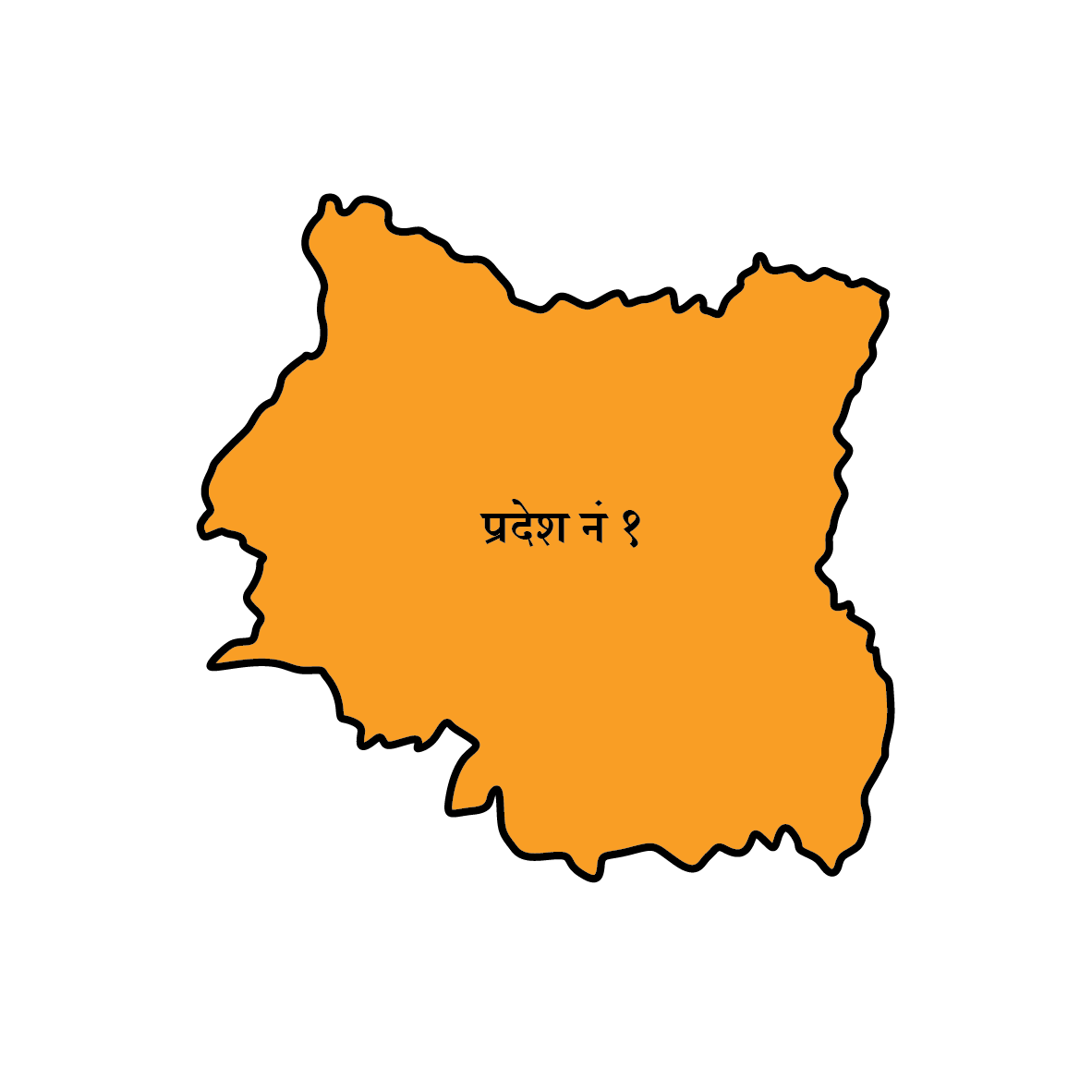 कोशी प्रदेश
कोशी प्रदेश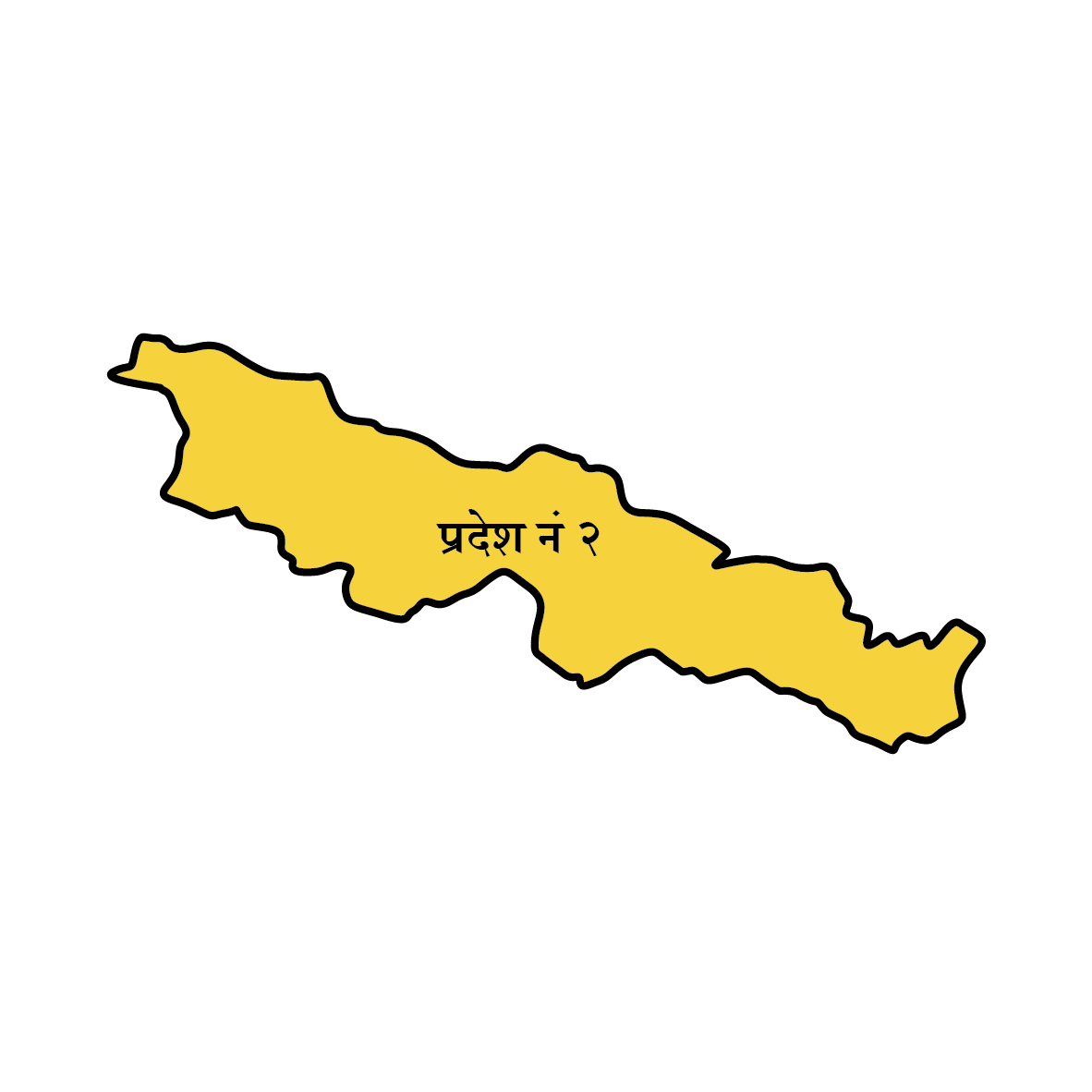 मधेश प्रदेश
मधेश प्रदेश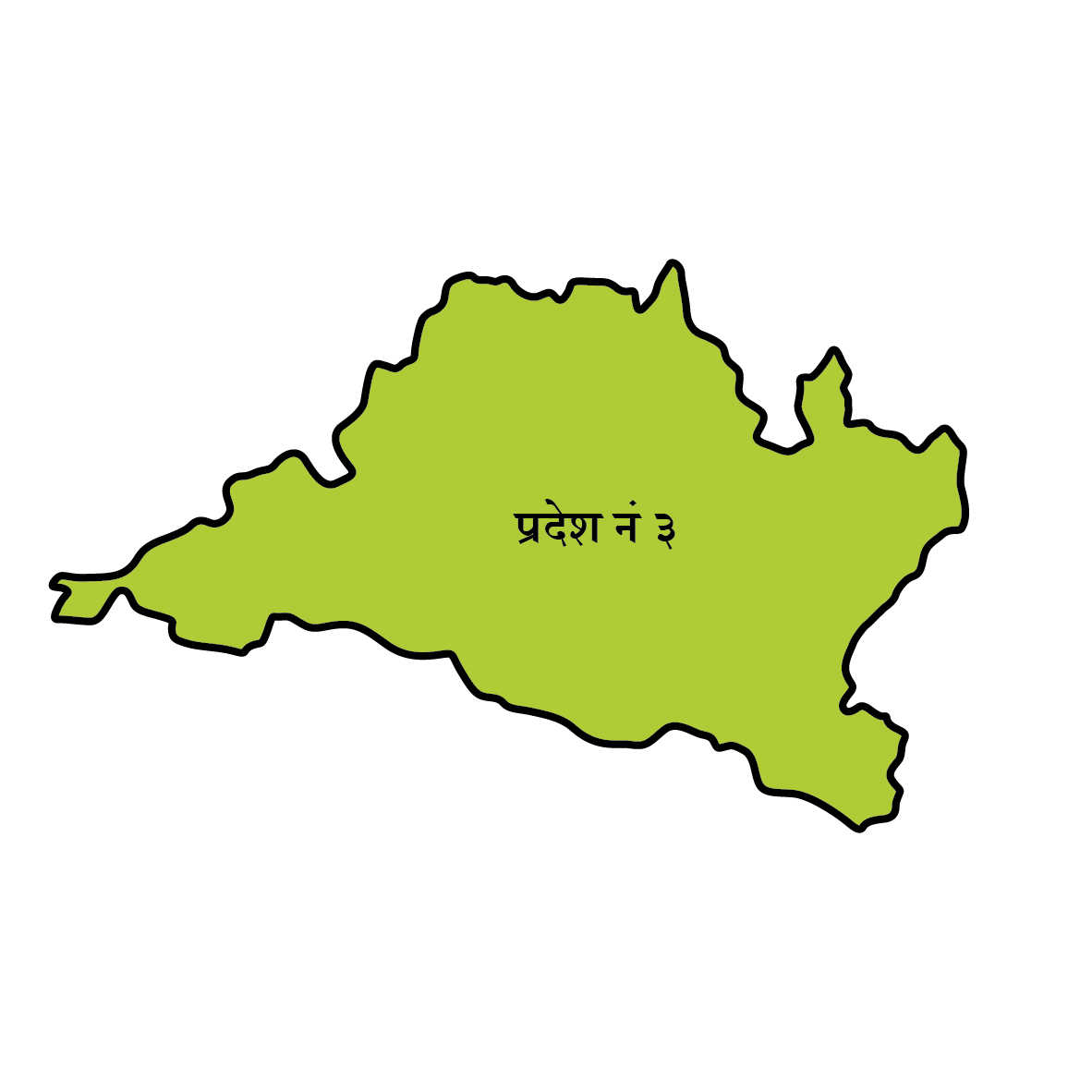 बागमती
बागमती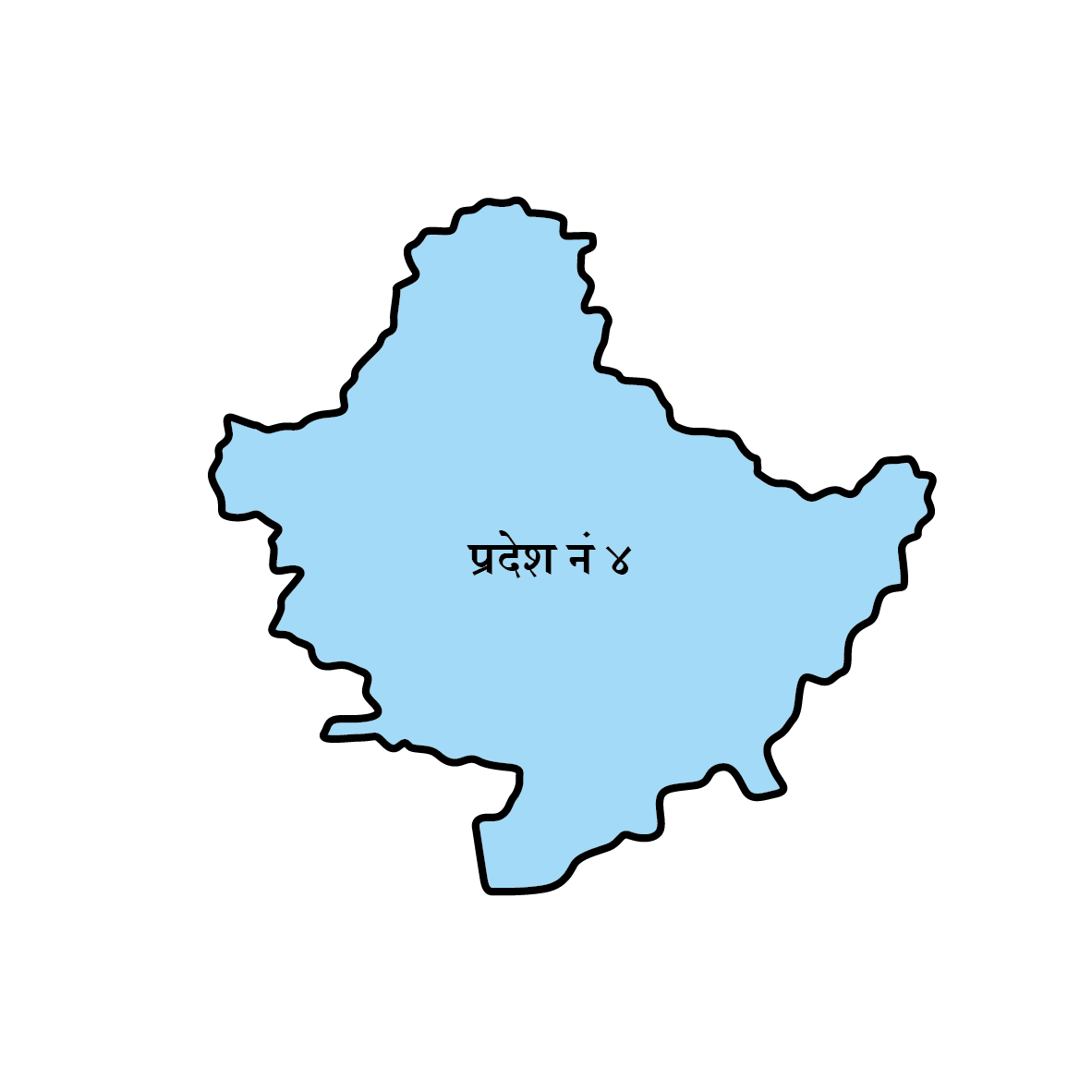 गण्डकी
गण्डकी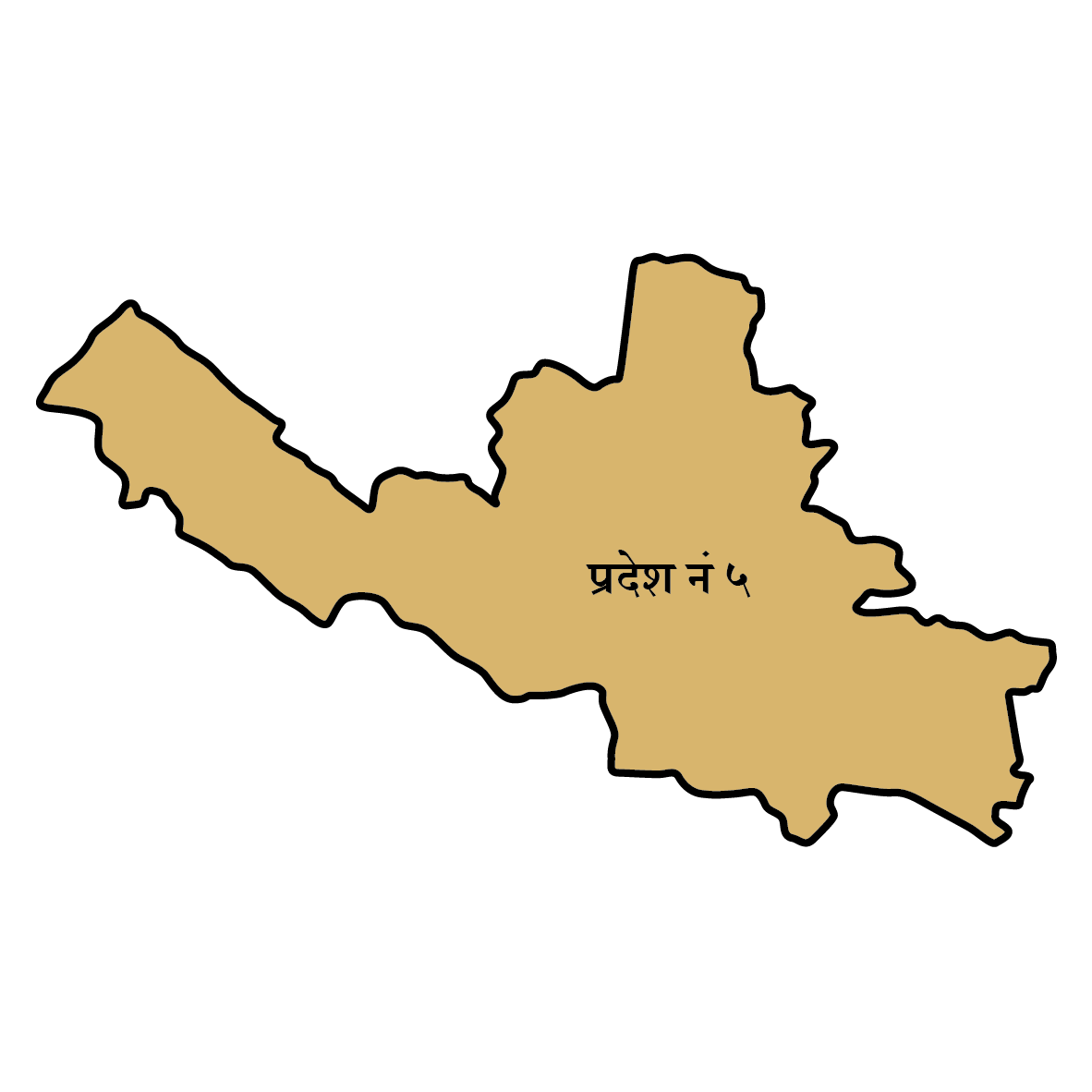 लुम्बिनी
लुम्बिनी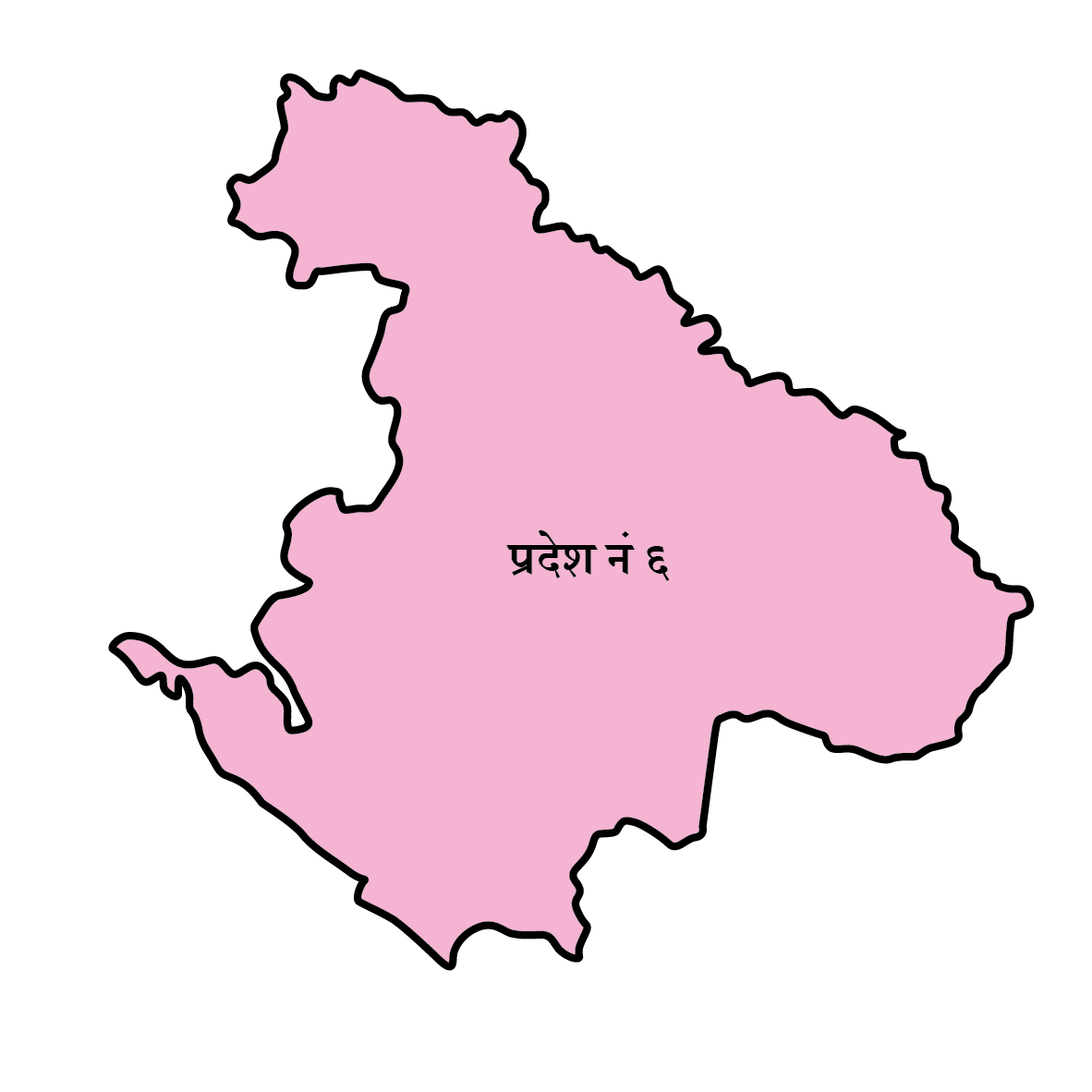 कर्णाली
कर्णाली 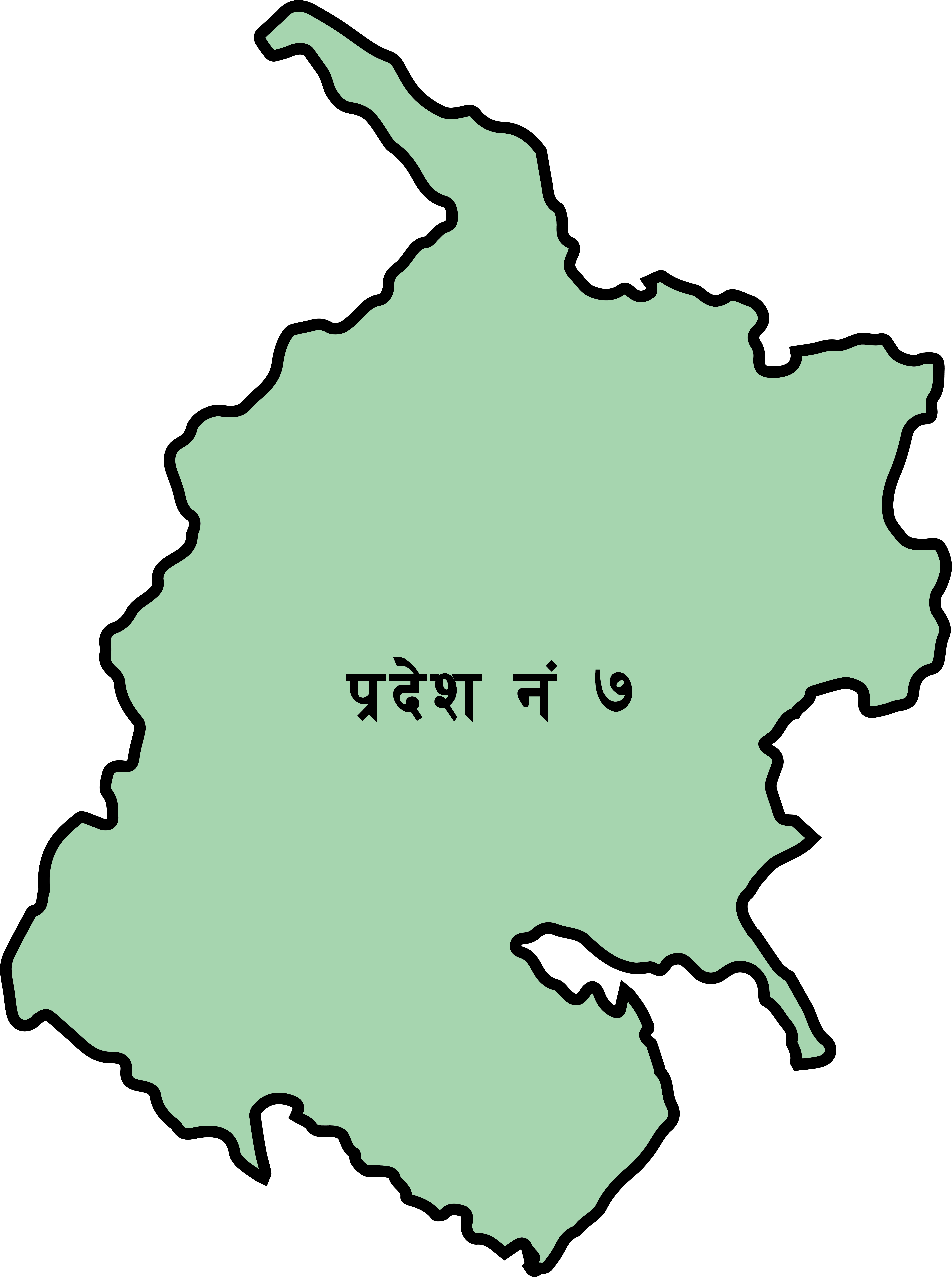 सुदूरपश्चिम
सुदूरपश्चिम
















